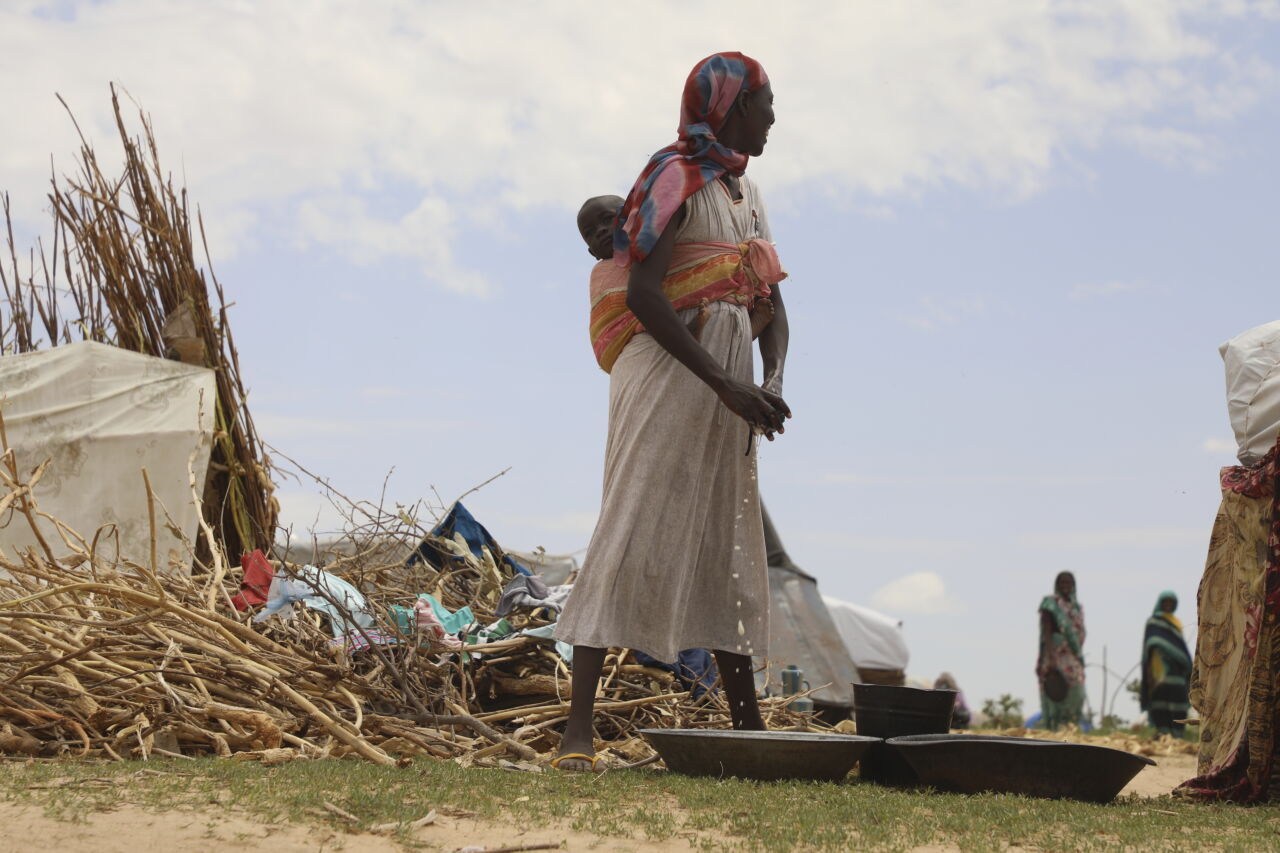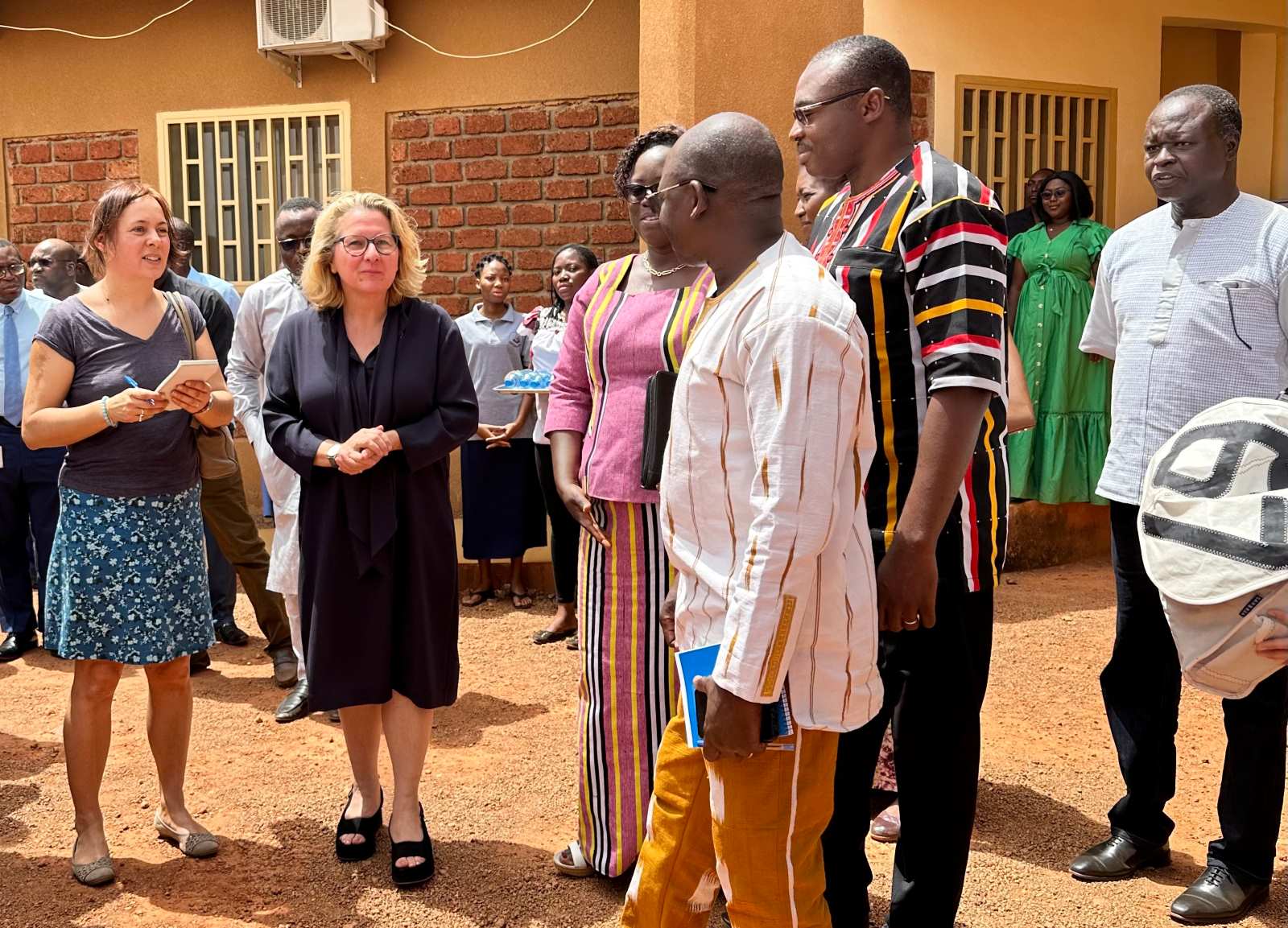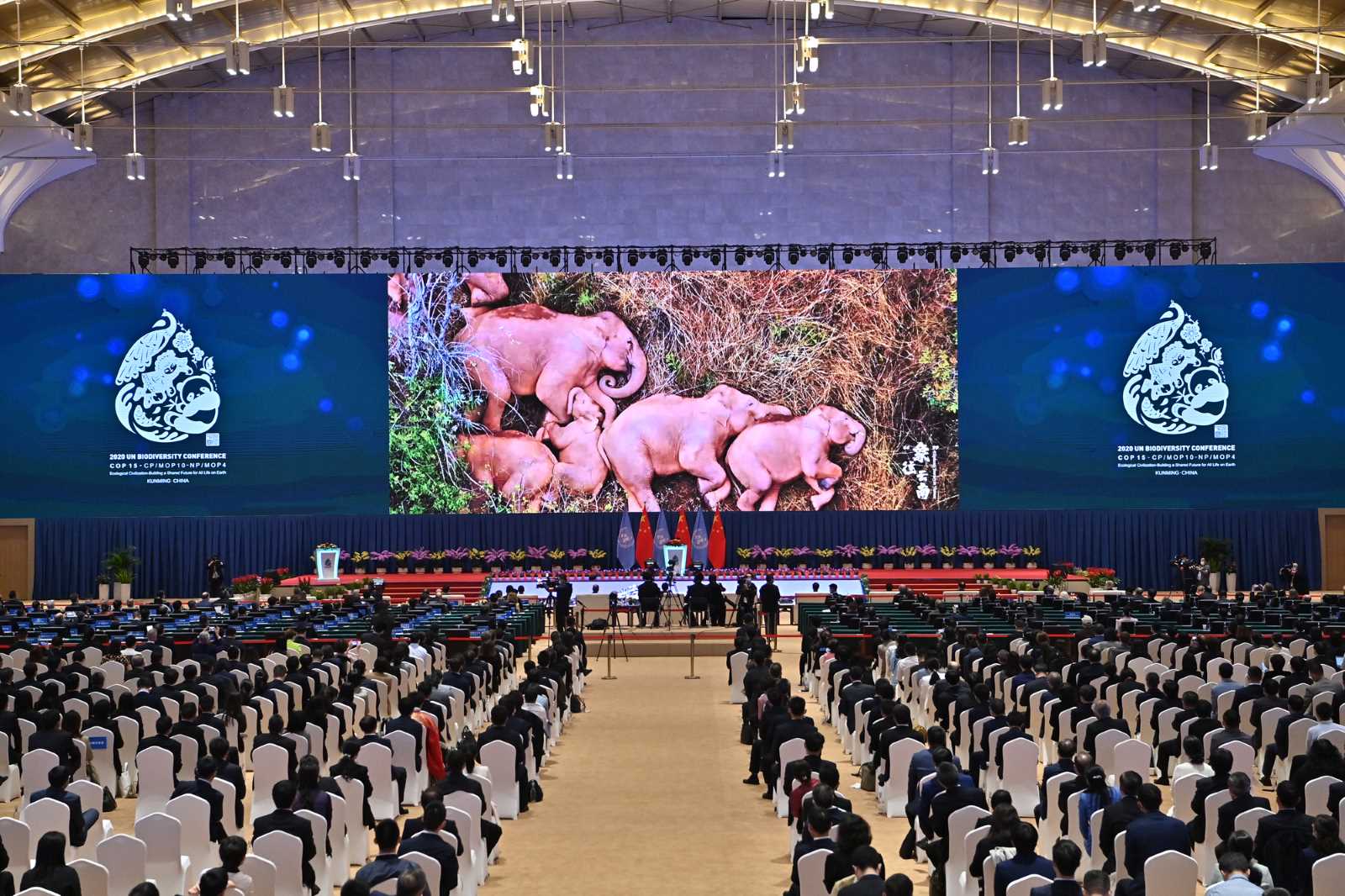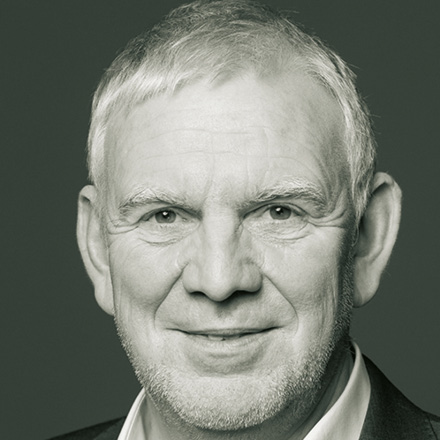Roundtable
“Focus on global development”
Interview with Simon Maxwell and Dirk Messner
Would the world be a different place if Germany had not set up the Federal Ministry for Economic Cooperation, the BMZ, 50 years ago?
Maxwell: Well, let me emphasise first that the global development effort is a success. Life expectancy has gone up by nearly thirty years in a generation, and infant mortality has halved. The number of people who do not get enough food is certainly still too high at around one billion people, but that absolute number has been stable for about three decades, a time in which the world population has more than doubled to seven billion. So, even though there still is too much poverty, the overall trend has been in the right direction. Ninety nine per cent of the credit for this success belongs to the people and governments concerned, but we know that aid has helped too. So, yes, the BMZ has made a difference – and it is important that the positive story be told.
What is the advantage of having a separate development ministry?
Maxwell: Britain established the DfID, the Department for International Development, in 1997. The idea was to ensure coherent leadership and influence across government on all aspects of development cooperation, not just aid. It has helped in the UK to have a cabinet member who focuses on development issues, giving those issues a higher profile and greater weight. Sometimes, for example, deals can be struck when people sit side by side on the front bench in parliament, or gather in No. 10, Downing Street, just before cabinet meetings.
Messner: I agree, development needs a strong voice in the cabinet. This is really about a special mindset. Before there was a development minister, all cabinet members predominantly considered the national interest. Even foreign ministers did so. But a development minister naturally considers the point of view of his partner countries, tries to find common ground and keeps global perspectives and joint global interests in mind. This different mindset matters a lot, especially in our era of global interdependencies.
Maxwell: Let’s not ignore the potential downside, however. There is a risk of development issues becoming the exclusive brief of the development minister, letting all other cabinet members off the hook in regard to how their action impacts on global affairs. Development must be understood as a cross-cutting issue for which all ministries bear some responsibility.
In Germany, there have been warnings that the development ministry might become something like a global welfare office.
Messner: The underlying issue is how we understand the ministry’s mission. There are basically two options. The first is narrowing down the concern of the development ministry to poverty issues and the fulfilment of the Millennium Development Goals. This kind of ministry will be quite weak in the long run, and it would focus on a shrinking number of countries. The alternative is to focus on global development. Let me explain what I mean. In most countries, there are healthy trends at the domestic level in terms of growth, governance, education and so on. As Simon just said, many nations are making progress. At the same time, we are experiencing huge global systemic risk – financial crisis, food crisis, climate change. The reasons are challenges that national governments cannot rise to on their own. These things are crucially important.
Maxwell: It is true that a nation’s welfare today depends on global as well as domestic policymaking. Governments have to keep one eye on what is happening inside their country, but their other eye has to be on the global arena.
What are the most important global challenges?
Messner: In my view, there are four core issues:
– Poverty still matters. We must not forget that one billion people do not get enough to eat and another billion is in danger of dropping back into absolute poverty.
– The peace, security, fragile statehood and poverty nexus is important – not least because strife-affected countries are where development is not happening.
– Knowledge and innovation for global development: We need more cooperation on creating and disseminating knowledge. So far, most knowledge is still generated in the OECD world, but that is not where the most daunting challenges are. The poorer countries need to be much more involved in the process too. Without endogenous knowledge capacities there is no way out the aid dependency traps.
– Development within the planetary boundaries: The world needs clean energy systems and low carbon urbanisation, and the most affected countries have to adapt to the global warming that has become inevitable. This challenge is probably the most urgent one. Unless action is taken fast, the problems will spin out of control.
Maxwell: You can always add points to Dirk’s useful list, like the loss of biodiversity, organised crime or terrorism, the spread of disease, or the increasing scarcity of water. I would put managing the global economy high on my personal agenda. But it is also important not to get caught in a depressing vicious cycle of focusing only on risks and problems. We must take account of the opportunities too. Many of those are driven by technology. Consider how difficult international communication was 50 years ago. Today, there is mobile telephony almost all over Africa. Mobile phones make societies much more inclusive, both at the domestic and the global level. Improvements in health technology are another example: think of the lives saved by vaccination or treated bednets.
Yes, but global problems can outweigh a lot of such progress. As Dirk just said, action on climate change is urgent, because the challenge won’t wait, it keeps growing. How do you maintain your enthusiasm in spite of painfully slow progress in the multilateral arena?
Maxwell: Of course, I agree about the urgency of climate change and the need for transformation of our economies. Indeed, transformation of some kind will happen whether we like it or not, because new markets will open up and old ones close. For example, Connie Hedegaard, the EU commissioner for climate issues, likes to point out that China is developing an export industry in renewable energy technology. Europe must act, or else China will crowd us out from that expanding global market. Then, yes, we need a global deal, and should study how collective action can best be facilitated.
But to what extent is what you are discussing now really the concern of development ministers?
Messner: Well, these are crucial issues of global development. Development ministries in rich nations have a comparative advantage over other ministries in this field. They know how to engage partners in foreign countries; they are good at inter-cultural exchange and action on the ground. In future, international cooperation will have to take place more at eye level. World affairs cannot be run according to the logic of dominant and subordinate nations in the long run. More countries need to be engaged; remember that we are living in an era of tectonic power and wealth shifts – from western to non-western countries. Development ministries, moreover, are the natural focal point for tackling global public goods, simply because they are already active in many relevant areas. The governments of rich nations would be foolish not to make use of that kind of experience and expertise.
Maxwell: Let me illustrate what Dirk just said with a British example. India has just set up its own bilateral aid agency. New Delhi has committed $ 5 billion for foreign aid to Africa over the next three years. Nonetheless, DfID is still cooperating with India, with a specific focus on global public goods and building partnerships with the private sector, as well as targeted assistance to India’s poorest states. This is definitely aid with a new perspective.
Messner: I’d like to add an important point. Development ministries have no monopoly on international cooperation. On the contrary, more and more line ministries are becoming involved in some kind of international exchange with non-OECD countries. And that is a good thing. International cooperation must not be the niche of development ministers, it must involve the “whole of government”. That is something we always demanded. My point is that there is a great risk of fragmentation if every ministry does international cooperation on its own terms. There is a need for coordination. If Germany’s BMZ rises to that challenge and becomes something like a ministry for global development challenges, it will gain influence. If, on the other hand, it decides to focus merely on poverty issues it will become weaker, and German policymaking as a whole will be less coherent.
Wouldn’t coherent policymaking at the European level be even more important?
Messner: Simon and I have both been arguing for strengthening European development cooperation for a long time. My personal hope is that the current Euro crisis will result in rekindling the debate on Europe in general, with Europe ultimately becoming stronger.
Maxwell: As Europe, we need to learn to “deliver as one”. The EU and its members account for around 60 % of international ODA. The European Commission, on its own, is a bigger ODA donor than the World Bank, and about as big as the whole of the UN. It is obvious that Europe’s influence does not match its spending. The EU could become an even bigger force for good in the world.
But wouldn’t a stronger EU make bilateral cooperation redundant?
Maxwell: No, within limits, not at all. Bilateral programmes allow people to gain first-hand experience and experience a sense of personal ownership of development projects. They provide an excellent platform for development education. Nonetheless, the balance with multilateral aid needs to be right.
My impression is that the governments of other rich nations are the strongest lobbies in support of development ministers. 50 years ago, US President John F. Kennedy was in favour of western governments’ aid efforts because they helped to contain the influence of the Soviet Union. More recently, G8 summits in Glenneagles and Heiligendamm pledged to increase aid sums. What about taxpayers? Are they really interested in development issues?
Maxwell: In the UK, there has historically been strong public support for development. NGOs are well-supported, especially when disasters strike, but also for longer-term development programmes. The recession has resulted in some erosion of support for official aid, but the government has decided not to cut DfID spending, and indeed to increase it, in order to meet the target of 0.7% of GNI by 2013. Only health has received similar protection. That was a brave decision, but it has cross-party support. Leaders, I think, must lead, and educate the public on the moral and strategic importance of development issues. As prime ministers, Tony Blair and Gordon Brown both did so, and now David Cameron is doing so too.
Messner: Germans take interest in development matters too, and they too are willing to donate for humanitarian purposes. At the same time, international competition is stimulating. In that sense, DfID has been good for the BMZ. German policymakers see that DfID has an impact internationally, so they want the BMZ to have an impact too.















